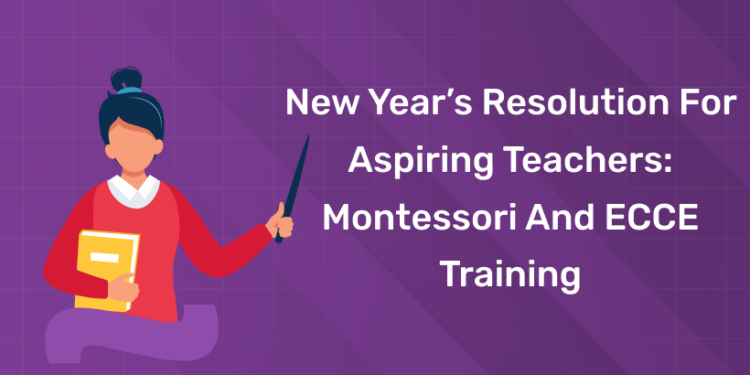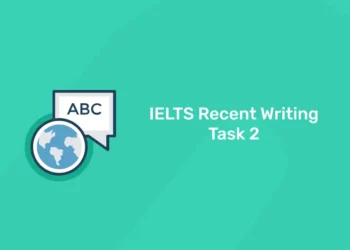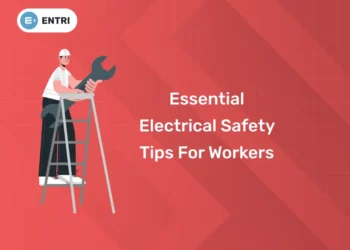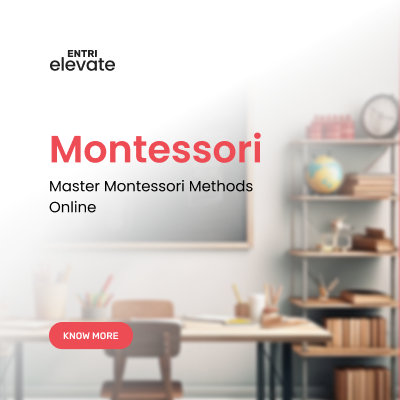Table of Contents
The start of a new year is the perfect time to reflect, set intentions, and take steps toward achieving your dreams. For those passionate about shaping young minds, New Year’s Resolution for Aspiring Teachers can serve as a roadmap to success. Whether you’re pursuing Montessori or Early Childhood Care and Education (ECCE) training, setting clear and actionable goals will help you build the skills, mindset, and expertise needed to excel in this rewarding profession. Let this year be the one where you transform your aspirations into accomplishments.
Unlock your passion for education and shape young minds as a Montessori teacher!
New Year’s Resolution for Aspiring Teachers: Montessori and ECCE Training
Introduction
As the new year dawns, it brings an opportunity to set goals, embrace challenges, and take steps toward personal and professional growth. For aspiring teachers interested in Early Childhood Care and Education (ECCE) and Montessori methodologies, this is an ideal time to align your aspirations with actionable resolutions. The Montessori approach and ECCE principles emphasize the holistic development of young learners. By setting clear goals for your own learning and practice, you can ensure a fulfilling journey as an educator.
This blog explores five essential New Year’s resolutions for aspiring teachers, focusing on how these goals can enhance their teaching skills and understanding of young learners.
1. Commit to Continuous Learning
The field of early childhood education evolves continuously, driven by research and best practices. Aspiring teachers must prioritize learning to stay updated on the latest methodologies and child development theories.
- How to implement this resolution:
- Enroll in certified training programs in ECCE or Montessori education.
- Attend workshops, webinars, or conferences focused on child psychology, sensory-based learning, and play-based methodologies.
- Read books and academic journals about modern trends in early education, such as technology integration or inclusive classrooms.
- Why it matters:
Continuous learning equips you with tools to address diverse classroom needs. It also ensures that you remain adaptable in a dynamic educational landscape, offering young learners the best opportunities for growth.
2. Master Practical Classroom Management Skills
Effective classroom management is the backbone of a positive learning environment. Montessori and ECCE classrooms require a balance between structure and freedom, which makes management skills essential for aspiring teachers.
- How to implement this resolution:
- Learn techniques to establish clear routines and guidelines while encouraging self-discipline among children.
- Practice creating activity schedules that allow students to engage in self-directed learning.
- Participate in role-playing scenarios to simulate classroom dynamics and practice resolving conflicts constructively.
- Why it matters:
A well-managed classroom fosters a nurturing and stimulating environment. By mastering these skills, you can reduce chaos and ensure each child thrives academically and socially.
3. Focus on Developing Empathy and Communication
Working with young children requires a high degree of emotional intelligence. Empathy and clear communication not only strengthen the teacher-student relationship but also foster a positive classroom atmosphere.
- How to implement this resolution:
- Reflect on your interactions with children and identify areas for improvement.
- Practice active listening to understand each child’s needs, interests, and concerns.
- Use non-verbal communication tools like facial expressions, tone of voice, and body language effectively.
- Why it matters:
Empathy helps you connect with your students, building trust and mutual respect. These skills enable you to address emotional or behavioral challenges with care and sensitivity.
4. Integrate Montessori and ECCE Principles into Lesson Planning
Montessori and ECCE education emphasize child-centered, experiential learning. Aspiring teachers should aim to incorporate these principles into their teaching methods.
- How to implement this resolution:
- Design lesson plans that include hands-on activities, sensory play, and exploratory learning opportunities.
- Utilize Montessori materials like manipulatives, puzzles, and learning cards to encourage self-paced learning.
- Incorporate ECCE practices like thematic learning or storytelling to make lessons engaging and relatable.
- Why it matters:
Integrating these principles ensures that learning becomes meaningful and enjoyable for young learners. It also aligns with global best practices in early childhood education, preparing children for future academic and social success.
5. Cultivate a Growth Mindset
A growth mindset is the belief that abilities and intelligence can be developed through dedication and hard work. As an aspiring teacher, fostering this mindset in yourself and your students is crucial.
- How to implement this resolution:
- Reflect on challenges and view them as opportunities to learn and improve.
- Encourage children to celebrate their efforts and progress, rather than focusing solely on outcomes.
- Seek feedback from mentors and peers to refine your teaching approach.
- Why it matters:
Adopting a growth mindset enables you to persevere through challenges and instills resilience in your students. It also fosters a classroom culture of curiosity and lifelong learning.
Unlock your passion for education and shape young minds as a Montessori teacher!
New Year’s Resolution for Aspiring Teachers: Conclusion
1: What is the primary focus of the first plane of development in the Montessori method?
As an aspiring teacher, the New Year offers a fresh start to align your aspirations with actionable goals. By committing to resolutions such as continuous learning, mastering classroom management, and embracing empathy, you can prepare for a fulfilling career in Montessori and ECCE education. With dedication and perseverance, you’ll not only enrich your own life but also positively impact the lives of countless young learners.
Let this be the year you take a step closer to becoming the transformative educator you aspire to be!
Frequently Asked Questions
What is the difference between Montessori and ECCE training?
Montessori training focuses on the principles and techniques of the Montessori method, which emphasizes hands-on learning, independence, and respect for a child’s natural development. ECCE training, on the other hand, is broader and covers a variety of early childhood education approaches, including play-based and holistic development practices.
Do I need prior experience to enroll in these training programs?
No prior experience is required for most entry-level Montessori and ECCE courses. However, a genuine passion for teaching and working with children is essential.
How long does it take to complete Montessori or ECCE training?
The duration varies depending on the program. Some certificate courses can be completed in a few months, while more comprehensive diploma programs may take one to two years.
Can I pursue Montessori or ECCE training online?
Yes, many institutions offer online programs that provide flexibility and allow you to learn at your own pace. However, ensure the program includes practical training components.
How can these resolutions enhance my teaching career?
By committing to continuous learning, honing classroom management skills, and embracing Montessori and ECCE principles, you’ll be better prepared to create meaningful learning experiences for children. These resolutions also demonstrate your dedication to professional growth, making you a more competitive candidate in the education sector.











